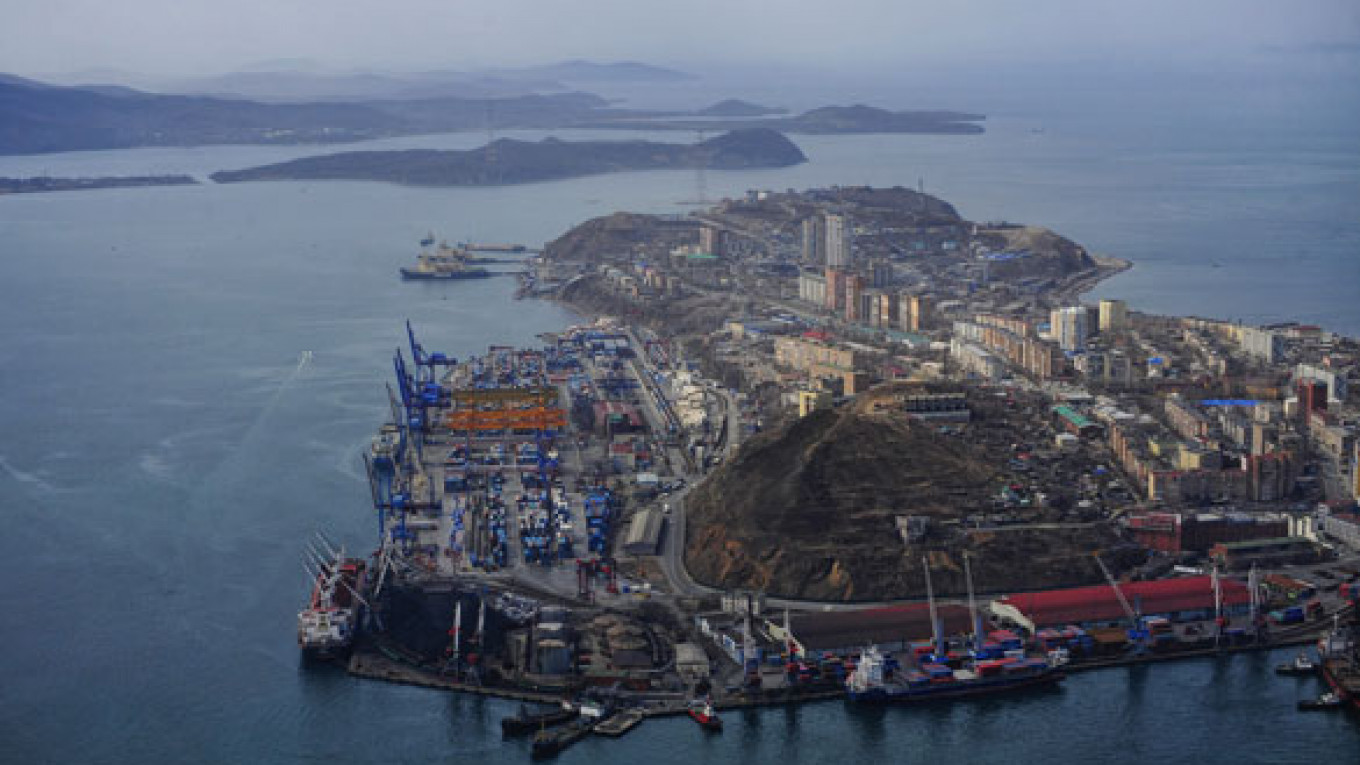The Cabinet is mulling further tax breaks for the Far East and moving some government agencies to the remote region in another bid to inject more vigor in the economically lagging area.
In addition, two new state companies could emerge to plow 170 billion rubles ($4.8 billion) into preparing industrial sites and utility services for potential investors.
Deputy Prime Minister Yury Trutnev announced the proposals Wednesday after a meeting that Prime Minister Dmitry Medvedev held about the region.
The government is looking to the Far East, with its immense resources, as a major driver for the economic growth of the country as a whole. In order to tap those resources, businesses would incur equally enormous expenses for building access roads and connecting to electricity and water supply.
Trutnev said the rate of the profit tax in the Far East could drop by half to 10 percent. The income tax could slide to 7 percent from 13 percent.
"These proposals are based on best practices," said Trutnev, who is responsible for the region's development.
His team, including Far East Development Minister Alexander Galushka, studied the experience of countries like Japan and China, Trutnev said.
The tax proposals come on the heels of the law that went into effect last year to slash the profit tax for large-scale investment projects in the Far East. The move has not, however, brought about a capital inflow to the region, prompting a search for other solutions.
As part of a change in the government's approach, former Far East Development Minister Viktor Ishayev stepped down last year. His successor Galushka has proposed setting up 'fast-track development' zones in the region. The areas would offer investors prepared sites for starting a business.
It was unclear Wednesday whether the tax incentives would apply only to the zones, or to the entire Far East.
The government is considering creating a Far East Development Fund, worth 100 billion rubles, for lending to potential investors in the region, Trutnev said.
Another state investment vehicle, the Far East Development Company, could come into being and receive 70 billion rubles to build roads and utility services lines to the yet-to-be designated fast-track development zones.
Trutnev is proposing to start spending the money as soon as later this year.
The government is set to name the first such zones by June 15, Trutnev said. Far East regions had sent in proposals to pick from 400 land plots, he said.
Medvedev also ordered Trutnev to submit proposals about moving several government agencies to Far Eastern cities, Trutnev said. Along with the agencies, the proposals should include relocating the head offices of some state-owned companies to the region, together with their tax payments, he said.
He declined to elaborate, saying the proposals are due next month. Thursday's meeting was the first in a series of meetings dedicated to the fast-track development idea. From now on, Medvedev will hold them every month, Trutnev said.
Contact the author at [email protected]
A Message from The Moscow Times:
Dear readers,
We are facing unprecedented challenges. Russia's Prosecutor General's Office has designated The Moscow Times as an "undesirable" organization, criminalizing our work and putting our staff at risk of prosecution. This follows our earlier unjust labeling as a "foreign agent."
These actions are direct attempts to silence independent journalism in Russia. The authorities claim our work "discredits the decisions of the Russian leadership." We see things differently: we strive to provide accurate, unbiased reporting on Russia.
We, the journalists of The Moscow Times, refuse to be silenced. But to continue our work, we need your help.
Your support, no matter how small, makes a world of difference. If you can, please support us monthly starting from just $2. It's quick to set up, and every contribution makes a significant impact.
By supporting The Moscow Times, you're defending open, independent journalism in the face of repression. Thank you for standing with us.
Remind me later.






